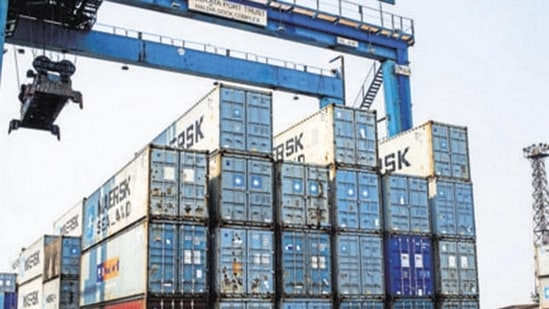A non-protectionist trade policy is what India needs
It should include pro-market reforms, not pro-business reforms that are reminiscent of India’s “stigmatised capitalism”
Union finance minister (FM) Nirmala Sitharaman was conspicuously silent in her Budget speech about India’s free trade agreement (FTA) negotiations. This was despite a renewed push to FTA talks. Till 2020, FTAs did not figure prominently on the radar of the National Democratic Alliance (NDA) government’s economic policy. The United Progressive Alliance (UPA) government signed 11 FTAs between 2004 and 2014. However, the NDA government signed only two, with Mauritius and recently the United Arab Emirates. India famously walked out of the Regional Comprehensive Economic Partnership Agreement – an FTA composed of Asia-Pacific nations, including China – negotiations at the 11th hour. In the last few years, the official narrative on FTAs has been that they led to India’s de-industrialisation in some sectors.

However, from 2021, the government that was criticising FTAs started showing an interest in these treaties. India kick-started negotiations with several blocs such as the European Union, Australia, Israel, and, recently, the United Kingdom (UK). Perhaps policymakers have finally realised that by not signing FTAs, India will fail to become part of global supply chains.
However, there is a fundamental dichotomy in India’s trade policy.
On the external front, India is exhibiting alacrity for freer trade. But domestically, India is doubling down on the Aatmanirbhar Bharat (self-reliant India) narrative. There is ample evidence to suggest that the narrative of a self-reliant India is a tale of old wine in new bottles or a “movie” that India has seen before, as Arvind Subramanian and Josh Felman argue. At the heart of this narrative is the belief that erecting tariff walls would shield domestic industry from import competition and allow it to become competitive. This economic philosophy is enunciated in the latest Economic Survey, which says that customs duties on certain imports have been hiked to provide “reasonable tariff support to goods being manufactured in India’’. Indeed, the average tariff rate in India increased from 13% to 18% from 2014 to 2020.
According to the Economic Survey, in the last six years, about 4,000 tariff lines (approximately a third of the total tariff lines) have seen an upward revision of customs duties. Union Budget 2022-23 carries forward the trend of protectionism by phasing out more than 350 customs-related exemptions. This trend was inaugurated by the late Arun Jaitley in the 2018 Budget when he made a “calibrated departure” from the post-1991 political consensus of lowering tariffs.
The incongruity with this Trumpian logic (former United States President Donald Trump built high tariff walls on the same ground) is that it lays the blame for India’s manufacturing woes squarely at the door of international trade.
However, the reality is that manufacturing in India suffers due to several factors such as the lack of competitiveness, failure to reap economies of scale, absence of land and labour reforms, infrastructural and regulatory bottlenecks, policy uncertainty, rising cronyism where rules are altered to favour select corporates, mounting social tensions and surging business concentration, among others. The jury is still out on whether offering fiscal sops to the manufacturing sector such as the production linked incentives (called “subsidy raj” by Subramanian and Felman) would reinvigorate industrial activity and generate jobs. As columnist Andy Mukherjee argues, two years of increasing tariffs in the electronics sector has increased the cost of assembling mobile phones in India by 8%, which, in turn, negates the benefits of the subsidy on offer.
India’s scorn for imports mirrors the Right-wing narrative against trade seen in the “capitalist” United States, where trade is squarely blamed for de-industrialisation, loss of blue-collar jobs, and for enriching the external “other” i.e. “communist” China. However, the irony is that India, along with several countries of Asia, has been one of the major beneficiaries of the free trade regime in the last three decades.
For India to unexpectedly turn “vocal for local”, and make a strong anti-imports pitch a central element of its domestic economic policy, especially when several of its East Asian compatriots are embedding themselves in mega FTAs, slashing tariff and non-tariff barriers, is bewildering.
The argument that these tariff hikes are for a limited duration and will be rolled back once industry becomes competitive is easier said than done. Beneficial fiscal regimes create their own set of vested interests and entitlements. Another argument advanced is that the tariff increases are not on goods used as inputs or raw materials but on finished products. This argument is an oversimplification of the ground realities because modern-day international trade takes place through global value chains where the production process is scattered across several geographies. Thus, it is not easy to classify goods as inputs and finished products as was the practice in the past.
Against this backdrop, it will be difficult for India to convince its present and potential FTA-negotiating partners to open their markets for Indian goods without due reciprocity. Trade is not a one-way street. India needs a non-protectionist trade policy, which should include pro-market reforms, not pro-business reforms that are reminiscent of India’s “stigmatised capitalism”. This would enable international trade to be a harbinger of growth and opportunity in India.
Prabhash Ranjan is professor and vice-dean, Jindal Global Law School, OP Jindal Global University
The views expressed are personal
Continue reading with HT Premium Subscription




